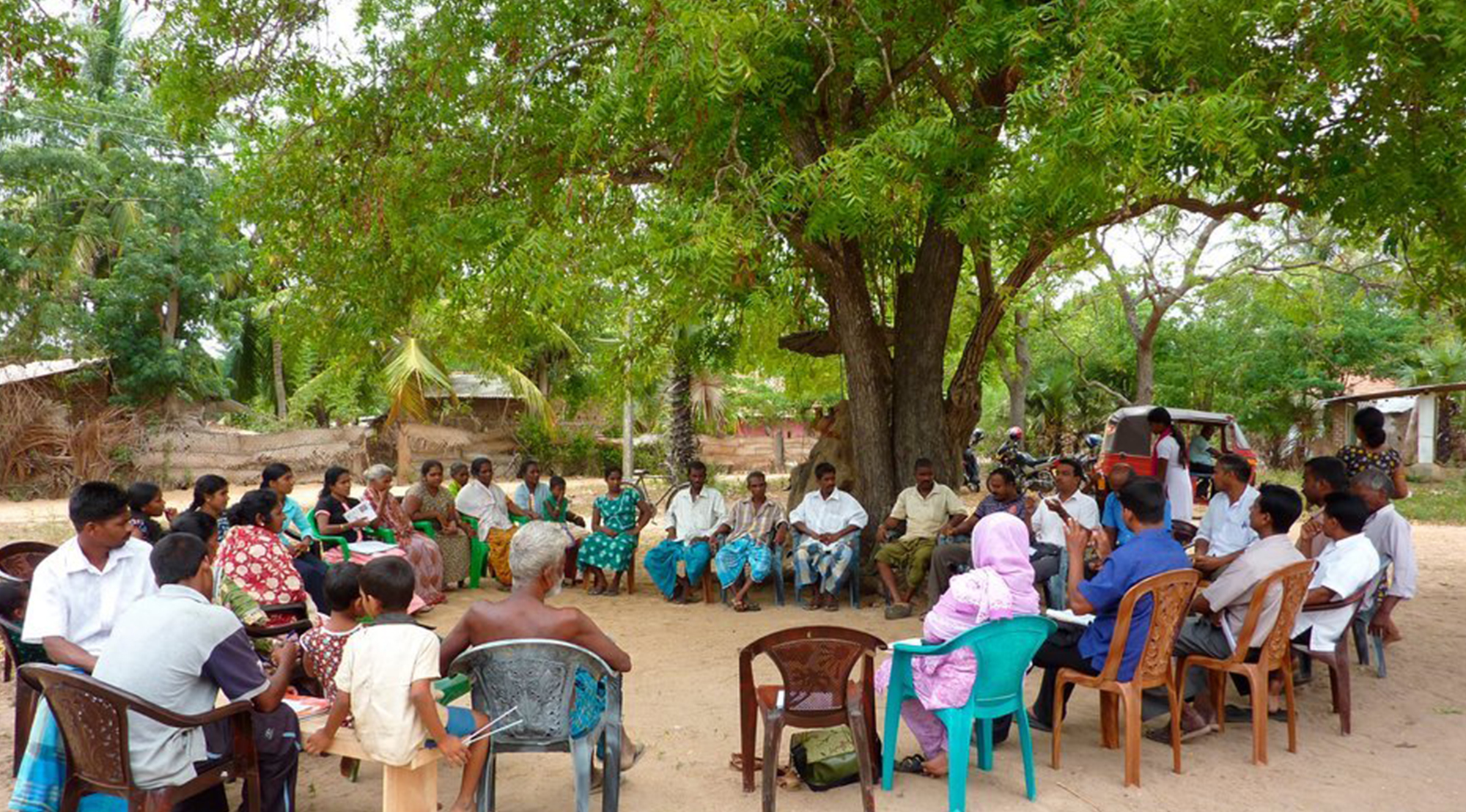The field guide ‘3 Steps for Working in Fragile and Conflict-Affected Situations (WFCS) ’
Topic sheet ‘Natural Resources and Conflict’
Conflict Sensitive Programme Management
Natural Resources and Conflict
Umwelt und Klima (in German)
Natural resources such as land, water, forests or fisheries are the primary sources of livelihoods for a significant part of the population in developing countries. Typically, several users utilize such resources, sometimes in cooperation, but often also competing with one another. Drawing on project experience from more than 20 countries, Helvetas has learned that sustainable natural resources management requires clear and secure allocation of land and resource tenure rights to users and fair benefit sharing mechanisms and must address questions of power between different users.
We develop our projects based on a thorough analysis of the interests and needs of actors, their claims for rights on resources, the institutional basis of these claims and the power relations amongst stakeholders. Where appropriate, we facilitate participatory decision making amongst relevant actors using cooperation and dialogue platforms designed to convene people with different interests, identities as well as social and economic backgrounds. Experience from diverse contexts such as dry areas the Sahel and in Eastern Africa with farming and pastoral communities, fisheries on the coast of Myanmar or forest management in the Andes or the Himalayas shows that well-designed interventions have the potential to prevent and mitigate conflicts.
In our project work, we promote conflict-sensitive programme management. We equip our staff to analyse and understand the local context, to recognize how our programmes interact with their environment, and to build or adapt our projects and programmes accordingly. Hereby, the manual and field guide ‘3 Steps for Working in Fragile and Conflict-Affected Situations (WFCS)’ developed by Helvetas and KOFF provides useful guidance.
Further key activities to address conflicts include: capacity development in non-violent conflict transformation techniques for individuals and institutions, the promotion of good governance principles amongst relevant actors and building on existing conflict resolution structures and mechanisms in the communities concerned.


